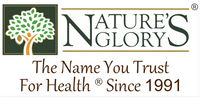As people's awareness increases over the years, they are more inclined to maintain a sustainable and healthy lifestyle. From holistic workout and to a healthier diet through organic food choices, many people are more proactive in improving their ways of living. A part of this endeavour includes choosing healthier and safer skincare products like organic soap.
Natural, organic soap, which is made exclusively of natural ingredients, is deemed better for your skin, health, and environment than the commercial, mass-produced regular soaps on the market.
What is Organic Soap?
Organic soap is a natural soap made from oils or fats, lye, water and typically natural dyes and essential oils. Organic soaps also have the added advantage of being created from ingredients produced by organic farming methods that do not utilise pesticides or synthetic fertilisers. They serve as an effective cleanser and help improve skin conditions, including acne, eczema and sunburn.
How Organic Soap Makes your Skin Healthier and Youthful?
Organic soap is a healthier option for your skin as it contains natural ingredients, including plant-based base oils, glycerine and essential oils.
-
Base oils
In most cases, the natural ingredients used in organic soaps are also grown organically. Most soap bars are created from base oils. Manufacturers use similar base oils that are used in cooking to make soap. Therefore, since it is safe enough for consumption, it can also safely be used on the skin. Most organic soaps are made from plant-based oils like olive, castor, palm and coconut oil.
-
Essential oils
Essential oils are aromatic or volatile compounds found in some plants. Most essential oils are distilled from edible things like herbs or citrus fruits. Two essential oils examples are lemon essential oil and tea tree essential oil. Experts advise against applying pure essential oils to your skin. Their concentration is high and can result in irritation. Nevertheless, you can use an essential oil just fine after diluting it with another oil.
Aside from cleansing and moisturising your skin, organic soap enhances the therapeutic aroma of the soap. Certain essential oils, including tea tree, peppermint, eucalyptus, lavender and lemongrass, also have antibacterial effects.
Moreover, essential oils, along with other natural ingredients like spices, herbal and plant extracts, provide organic soaps with additional healing properties.
-
Glycerine
Most organic soaps also consist of glycerine. Glycerine or glycerol is a natural by-product of the soapmaking process. Many mass-market soap manufacturers and some small-batch soap makers take glycerine off the soap to extend bar soaps’ lifespan. Sometimes, they sell it for use in other cosmetics.
However, when the glycerine remains in the bar of soap, it serves as a humectant that draws moisture from the air to the skin. In skincare products, this substance is typically used with occlusives, a moisturising agent that captures moisture it draws inside the skin.
According to a 2016 study, glycerine is considered the most effective humectant compared to many other ingredients, such as alpha-hydroxy acids like glycolic and lactic acid, propylene and butylene glycol hyaluronic acid, urea and sorbitol.
Studies also found that glycerine can hydrate the skin’s outer layer, improve the skin's barrier function and mechanical properties, protect skin against irritations, and facilitate the wound healing process.
While organic soaps only contain mostly organic substances, they sometimes contain a non-organic compound called lye. Nevertheless, lye is plant-based as it comes from wood ashes. Also, organic soaps typically no longer contain lye if the saponification process is carried out properly.
What Organic Soap Lacks That Make Them Better for Your Skin?
Unlike organic soap Singapore that is made of natural and organic ingredients, regular, mass-produced soaps are made from petroleum-based foaming agents, synthetic perfume, harmful preservatives and strong dyes. Hence the reason why many customers tend to say that their skin feels better after using organic soap.
Here are some of the harsh chemicals and substances that organic soap lacks compared to ordinary soap, making them safer and better for your skin:
- Surfactants: These chemicals comprise soap-cleaning properties. They are made up of long molecules with two distinct ends: one draws water while the other draws oils and dirt. They are not necessarily harmful to your body, but the problem arises when one of the surfactants is SLS or sodium lauryl sulphate. While SLS is made of coconut oil, it is contaminated with harmful by-products when it is created and has been associated with toxicity, skin irritation, endocrine disorders and cancer.
- Parabens: These substances are a preservative typically used in personal care and cosmetic products to hinder mould and bacterial growth. They have been associated with reproductive problems and cancer. The most typical parabens to stay away from are butylparaben, propylparaben and methylparaben.
- Artificial Flavours: Most artificial flavours are procured from petroleum. They can cause asthma attacks, allergic reactions, eczema, nausea, migraines and various other sensitivities.
Conclusion
Compared to regular soaps that contain harsh chemicals and toxic, synthetic ingredients, organic soaps are made of natural and organic ingredients that can make your skin healthier and youthful, including essential oils, base oils and glycerine. Using organic soaps regularly may also help to alleviate certain skin conditions, including acne and eczema.

